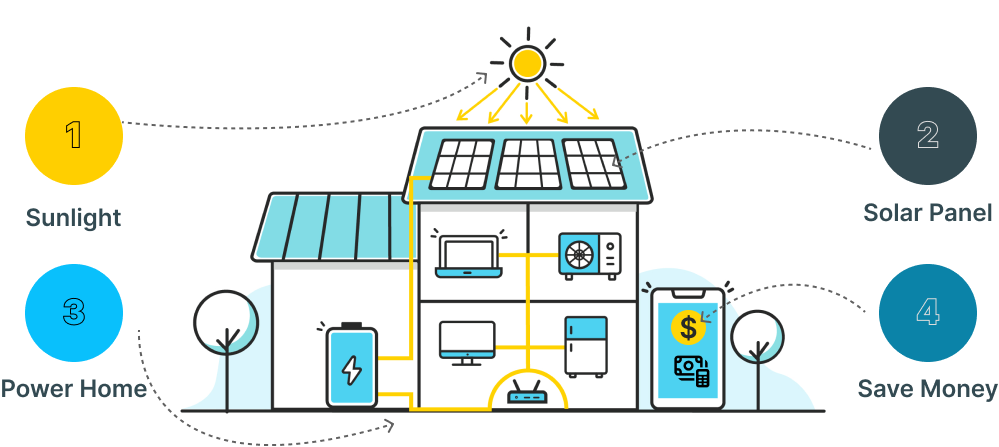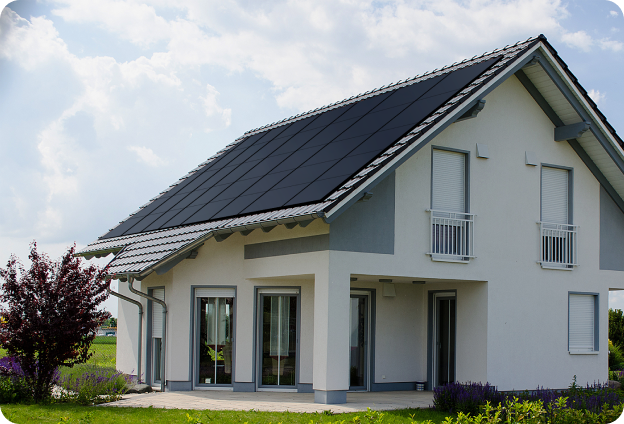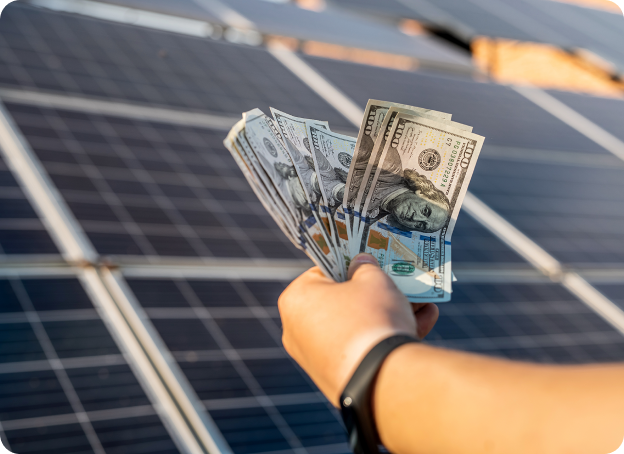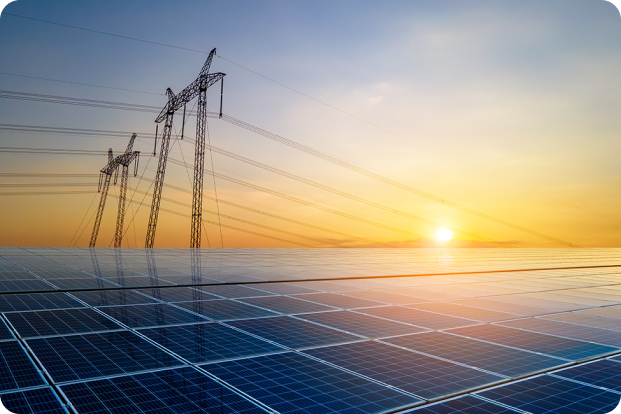Premiere Solar Provider
Going solar has never been simpler with Catalyst Solar. Get Your Instant Estimate For Solar In Florida.
How Solar Works

Florida
Rebates, tax credits and other solar incentives available
Net metering in Florida (3.0)
Since 1996, utility companies in Florida have been required by the Florida Public Utilities Commission to offer full 1-to-1 net metering (NEM) to their customers. This means that utilities are required to give you the full retail value for each unit of solar power you personally generate and send back into the grid.
In 2016, Florida instituted NEM 2.0. NEM 2.0 brought three main changes to the previous NEM policy, with 3.0 changing the landscape even further.


Solar incentives in Florida
Florida’s renewable portfolio standard (RPS) was recently revamped to require utilities to derive 50% of their energy from renewable sources by 2030.
Many upfront utility-based incentives that were established under the Florida Solar Initiative are now exhausted for residential customers and are nearly exhausted for commercial customers. However, the case for investing in solar has never been stronger due to reductions in the price of solar systems helping to compensate for the lack of some upfront rebates.

Tax Exemptions
Florida offers two tax exemptions for solar systems: a sales tax exemption and a property tax abatement. Under the Solar and CHP Sales Tax Exemption, solar energy systems are exempt from Florida’s sales tax and use tax.
This means your neighbor will receive a credit that equals 81% of the retail price of electricity for each excess kWh of energy he exports to the utility’s grid. He will receive that rate for 20 years.
Property Tax Exemption
Florida homeowners can now save on their property taxes with the installation of residential solar systems.
Usually, having a solar system on your property would increase your property taxes, however The Property Tax Exclusion for Solar Energy Systems exempts 100% of the assessed value of a solar system from residential property taxes.

Take Control Of Your Energy With Batteries
Keep Your Lights On
Energy Independence
Control Your Home
Safety Without Compromise
Contact Us Today
Frequently Asked Questions
1.What are the financial benefits of solar energy?
When you install a solar energy system on your property, you save money on your electricity bills and protect yourself against rising electricity rates in the future. How much you can save depends on the utility rates and solar policies in your area, but going solar is a smart investment regardless of where you live.
2.What are the environmental benefits of solar energy?
Solar power, like other renewable energy resources, has many environmental and health benefits. Going solar reduces greenhouse gas emissions, which contribute to climate change, and also results in fewer air pollutants like sulfur dioxide and particulate matter, which can cause health problems.
3.What is net metering?
Net metering is the system that utilities use to credit solar energy system owners for the electricity produced by their solar panels. With net metering, you only pay for the electricity that you use beyond what your solar panels can generate. Net metering policies differ from state to state – from Massachusetts to California – so make sure to do your homework ahead of time.
4.Do my solar panels produce power when the sun isn’t shining?
The amount of power your solar energy system can generate is dependent on sunlight. As a result, your solar panels will produce slightly less energy when the weather is cloudy, and no energy at night. However, because of high electricity costs and financial incentives, solar is a smart decision even if you live in a cloudy city.
5.Will I still receive an electric bill if I have solar panels?
Unless your solar energy system includes battery storage and you are fully off the grid, you will still receive a bill from your utility. However, you can dramatically reduce your bill, or even cut the amount you owe to $0, with a solar panel system that matches your energy use.
6.How much will solar panel maintenance cost?
Solar panel systems are made of durable tempered glass and require little to no maintenance for the 25 to 35 years that they will generate power. In most cases, you don’t even need to clean your solar panels regularly. If something does happen, most equipment manufacturers include warranties, although warranty terms depend on the company.
